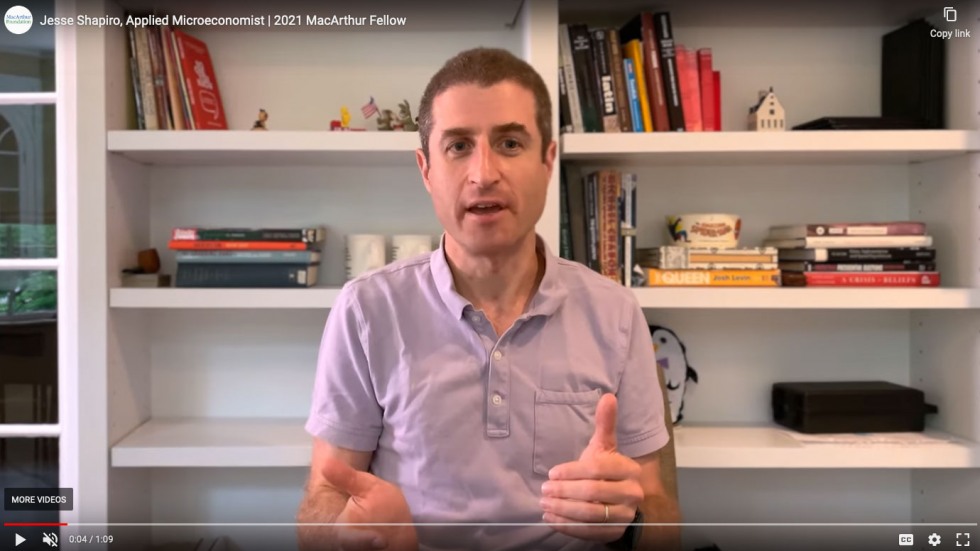PROVIDENCE, R.I. [Brown University] — The MacArthur Foundation has named Jesse Shapiro, a professor of economics at Brown University, one of 25 MacArthur Fellows from across the nation for 2021.
The fellowship’s financial award of $625,000 over five years will advance his efforts to confront complex social issues through his research. Shapiro, an applied microeconomist who joined the Brown faculty in 2015, has become expert at assembling disparate pieces of evidence — from new and historical data to qualitative findings — to address a wide variety of pressing problems, including political polarization, media bias and recidivism.
“Part of what got me excited about becoming an economist is the huge range of problems to which economics and data analysis can be applied,” he said in a video produced by the MacArthur Foundation, noting that he focuses on problems that have implications for public policy. “I think a fundamental premise of social science is that by better understanding our social world, we can figure out ways to make things work better.”
The MacArthur Foundation selected him for his bold approach to advancing understanding of major societal problems and for his eclectic range of research interests.
“Focusing on a variety of important questions of our time, Shapiro is advancing our understanding of the efficacy of public policy interventions and clarifying the forces contributing to the increasingly entrenched political polarization of American communities,” read a Tuesday, Sept. 28, announcement from the foundation.
Often dubbed the “genius grant,” the prestigious MacArthur Fellowship is awarded to just 20 to 30 people each year. Among this year’s awardees are writers, scientists, artists, humanists, teachers and entrepreneurs. The foundation chooses fellows from recommendations from external nominators across a vast breadth of fields who draw on their expertise to recommend creative, innovative leaders who may be on the precipice of a great discovery or a game-changing idea.
According to the foundation, the fellowship funds come with no strings attached and are intended to “encourage people of outstanding talent to pursue their own creative, intellectual and professional inclinations… They may use their fellowship to advance their expertise, engage in bold new work, or, if they wish, to change fields or alter the direction of their careers.”
Shapiro, who uses rigorous statistical methods and novel data to answer questions that are important for public policy and society, said the fellowship will enable him to boldly explore a wide array of timely, relevant subjects in his research, even if the prospects for that research are uncertain.
“A very important part of my work is taking intellectual risks and working outside my comfort zone,” Shapiro said. “In light of the fellowship, I hope that I'll be able to continue to take risks and be willing to fail — though hopefully not too often!”
In the short term, he said, the funds will support research on topics such as political polarization, trends in cognitive skills and the structure of advertising markets.
